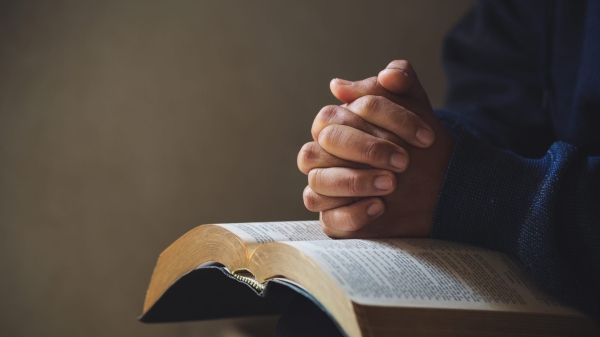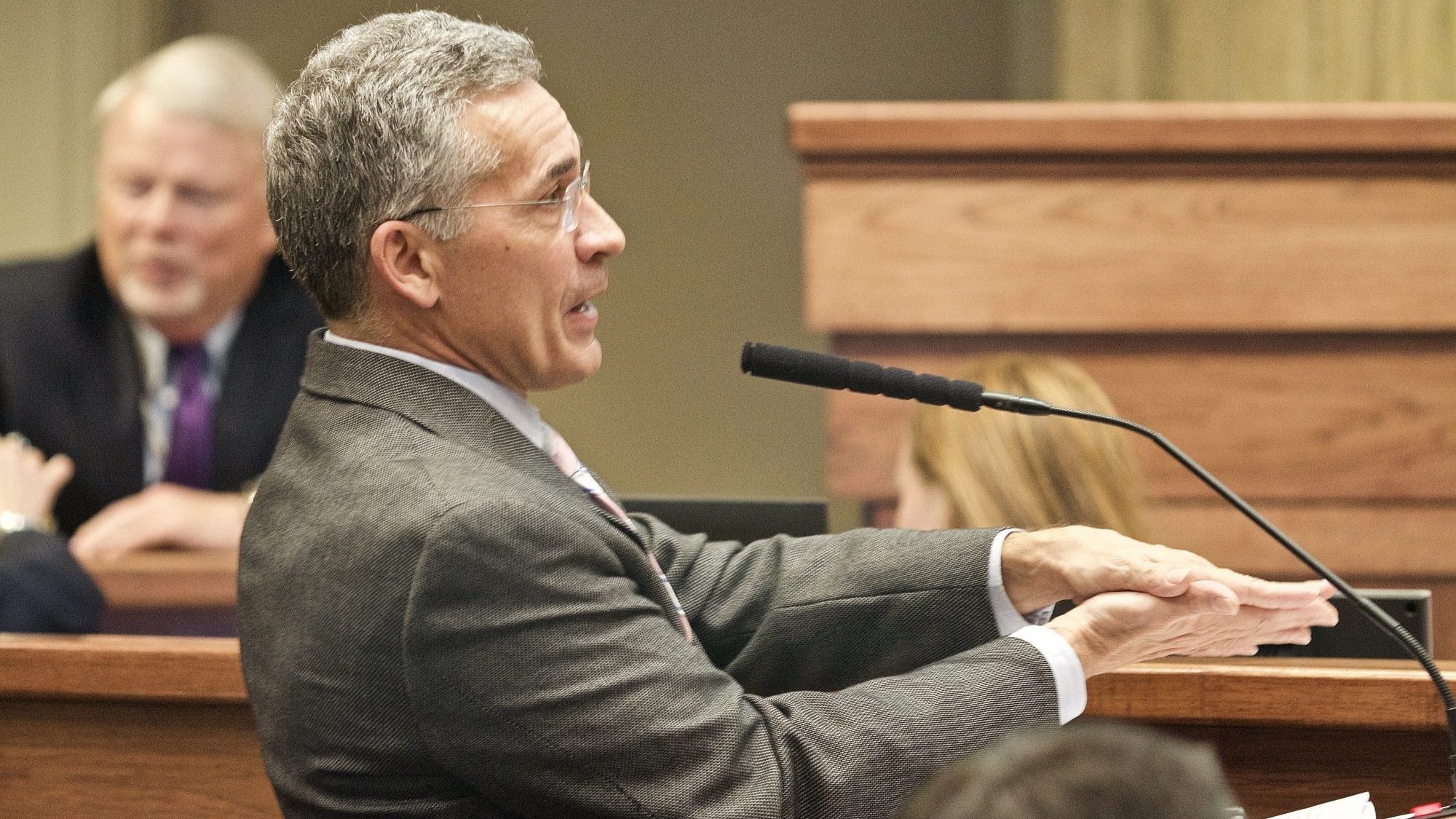The Alabama Senate on Tuesday rejected a proposed constitutional amendment that would have allowed as many as 10 casinos across the state, created a state lottery, established an Alabama Gaming Commission and allowed legalized sports wagering in Alabama.
The gambling legislation was sponsored by state Sen. Del Marsh, R-Anniston. Marsh was the Senate pro tem from 2010 to 2021, stepping down at the start of this session, but half of the Republican caucus voted against advancing his gambling bill.
Senate Bill 214 was based on recommendations by Alabama Gov. Kay Ivey’s study group on gambling that released a report predicting that gambling legalization could bring in between $500 and $700 million a year. Marsh read a statement from the governor supporting his legislation. That did not prove effective.
“Today’s vote by the Alabama Senate confirms more work must be done, because this issue is too important to not get it right,” Ivey said in a statement following SB214’s defeat. “No doubt gambling is complex and challenging, but I remain committed to giving the people of Alabama the final say. I also believe the work of my Study Group last year can continue to be helpful in finding the right path as we move forward. Should the Legislature wish to continue discussions on this topic, I stand ready and willing to engage.”
Marsh introduced a substitute bill on the Senate floor from the one he originally introduced.
“214 is an attempt to finally control gaming in the state,” Marsh said in the debate. “Is it perfect? No.”
“Initially all the money in the lottery went to scholarships,” Marsh said.
Marsh accepted an amendment from Sen. Kirk Hatcher, D-Montgomery, that moved 35 percent to K-12 education with 10 percent going to failing schools.
To try to win support from farmers, Marsh’s substitute created an agricultural grant program for farmers.
“The first $15 million in unclaimed lottery proceeds go to an agricultural grant program,” Marsh said. “This would allow them to have a grant program with a one-to-one match program.”
Marsh also accepted an amendment from Sen. Linda Coleman-Madison, D-Birmingham, that expanded the Alabama Gaming Commission board from seven to nine and allowed the minority caucus to produce a slate of three names from which the lieutenant governor and governor could select two board members.
Marsh also changed the bill where the casino license fees on the casino in Birmingham went down from $105 million to just $35 million. The substitute also fixed the sites of the casinos where they had to be: the Birmingham Race Course, Victoryland, Greentrack, the old Country Crossings facility in Dothan, the Mobile Greyhound Track, and a site to be named later either in Jackson or DeKalb County.
Sen. Donnie Chesteen, R-Geneva, thanked Marsh for adding Dothan to the growing list of casino sites.
Marsh accepted an amendment from Sen. Malika Sanders-Fortier, D-Selma, to add Whitehall Entertainment in Lowndes County to the bill. Sanders-Fortier was unable to attend because of health issues, so Senate Minority Leader Bobby Singleton, D-Greensboro, introduced the amendment on her behalf. The absences by Sanders-Fortier and Sen. Priscilla Dunn, D-Bessemer, would play a key role in SB214’s eventual defeat.
Marsh rejected an amendment from Sen. Jack Williams, R-Wilmer, to allow a non-federally recognized Indian tribe to get their own casino. Marsh said that casino licenses outside of Birmingham would all be $5 million. “If that facility is determined to be underperforming, the Gaming Commission can come in and pull that license,” he said.
The substitute changed the language to “the governor shall enter into a compact negotiation with the Poarch Creek Indians” it had been “may.” “Shall does not mean the governor will get a deal,” he said.
“All would go to class III if passed,” Marsh explained.
Singleton said: “At the last minute you have Houston (County) coming in. I am fine with Houston coming in, but we had other folks wanting in.”
Marsh also accepted an amendment from Coleman-Madison that made HB214 null and void if all of the enabling legislation is not also passed before it is voted on by the people.
“This will be the first time in the history of the state that we have high dollars for high-speed internet,” Marsh promised.
Marsh said that 65 percent of the state’s casino tax money would go to broadband expansion and 10 percent for mental health and 25 percent for healthcare. After the first billion for broadband was reached, 25 percent would go for non-recurring General Fund expenses, 25 percent for broadband, 15 percent for mental health, 10 percent for local government infrastructure grants, and the rest goes to rural healthcare.
The sports game betting goes to replenish the final $150 million that is owed to the Alabama Trust Fund and the next $100 million to the trust fund because “as most of you know the oil and gas revenue has been decreasing.”
“The money from the compact with the Poarch Creek Indians would go to the general fund,” Marsh explained. “They have three facilities operating in the state.”
The three Indian facilities plus the five original casino sites, plus Houston and Lowndes Counties would have made for ten casinos in Alabama.
“We are going to have to deal with that issue,” Marsh said of prisons. “That revenue can fill that hole.”
“This will be the first time that this state has truly controlled gaming,” Marsh said. “This will stop these fly-by-night operations that end up coming into places like Jasper.”
“All are benefits to the state,” Marsh said of his bill. “I started this nine months ago. I have done my best.”
“I would hope members of the Legislature want to settle this issue once and for all,” Marsh said. “This bill if it leaves today will be back in the Senate.”
Marsh predicted that his gambling bill would bring in “$600 to $1 billion.”
“I am trying to get something to the people of Alabama that has a chance of passing,” Marsh said.
Once Marsh finally got through with his presentation, the Senate vote 19 to 13 in favor of his bill, but because SB214 is a constitutional amendment, it required 21 votes for passage. Sanders-Fortier and Dunn were both absent while Senate District 14 is currently vacant due to Cam Ward being appointed to head the Pardons and Paroles Bureau.
SB214 failed to get the three-fifths majority needed for passage. The bill could in theory be reconsidered if one of the 13 Republican Senators on the prevailing side asked that it be brought back, but that is highly unlikely.
The defeat of SB214, with the Statehouse barred to the public due to COVID-19 restrictions, was a huge victory for the Alabama Citizens Action Patrol, who fought the bill with really only phone calls and emails.
“This terrible constitutional amendment will result in casinos all over our state,” ALCAP Director Joe Godfrey said on social media.
“Sen. Del Marsh asked on the floor of the Alabama Senate, ‘When are we going to address the gambling issue if not now?’ Sen. Marsh, the way to address the gambling problem is not to expand gambling by making gambling legal, but to shut down the ILLEGAL gambling facilities!” Godfrey said.
Senator Jim McClendon, R-Springville, voted yes on Marsh’s bill. He is the only legislator to pass a gambling bill out of both Houses of the Alabama Legislature since Don Siegelman’s lottery in 1999, which the voters rejected. His 2016 lottery bill failed only because the House and Senate were not able to resolve their differences.
McClendon told reporters that he is going to now introduce a simple lottery bill.
Senate Majority Leader Clay Scofield, R-Guntersville, opposed SB214 but did say that he would support a simple lottery bill without any casinos.




















































